Enhancing Social Cohesion And Household Resilience Through Savings For Transformation (S4T) Groups In Kenya
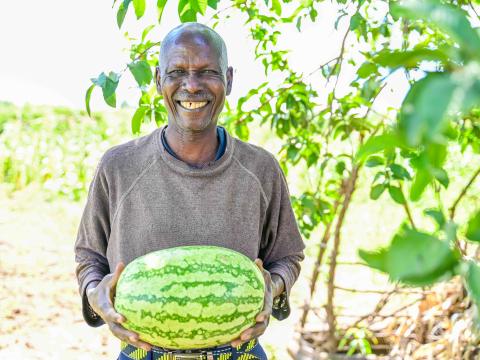
As of 2021, 79.2 percent of Kenya’s adult population had bank accounts, a gradual increase over a decade from 42.34 percent in 2011. For vulnerable communities in rural Kenya without access to banking services, this implies that they are unable to safely save money for their children and families' most basic necessities.
In order to bridge this gap and overcome poverty and income inequality, World Vision is using the Savings for Transformation (S4T) model to build household resilience and social cohesion through its Central Rift Farmer Managed Natural Regeneration Scale Up Project (CRIFSUP). The project funded by Australian NGO Cooperation Program (ANCP) is working with over 40 S4T groups from four counties (Baringo, Elgeyo Marakwet, Nakuru and West Pokot) in Kenya.
From Metkei Village, Nakuru County, is Isaac Chelal who was able to start a watermelon business thanks to being a member of Muricho S4T Group. Isaac came to learn about S4T in 2022 after being selected as a lead farmer in World Vision’s CRIFSUP project to implement the Farmer Managed Natural Regeneration (FMNR) approach. The simple tree regeneration approach is geared towards restoring degraded landscapes while strengthening food security and livelihood resilience for smallholder farmers and pastoralists who have been affected by the impacts of climate change.
“After joining Muricho S4T group, I decided to sell watermelons to boost my source of income,” Isaac says, “I bought one share during our first group meeting. However, in the succeeding meetings I was committed to purchasing five shares until the end of the group cycle.”
Isaac began his watermelon business in November 2022 after taking a loan worth 1,000 KES (7.77 USD) from the S4T group. He used this money to purchase ten watermelons that costed 30 KES (0.23 USD) each. Afterwards, he sold them at 100 KES (0.78 USD) each. In three days, he had made a profit of 2,100 KES (16.31 USD).
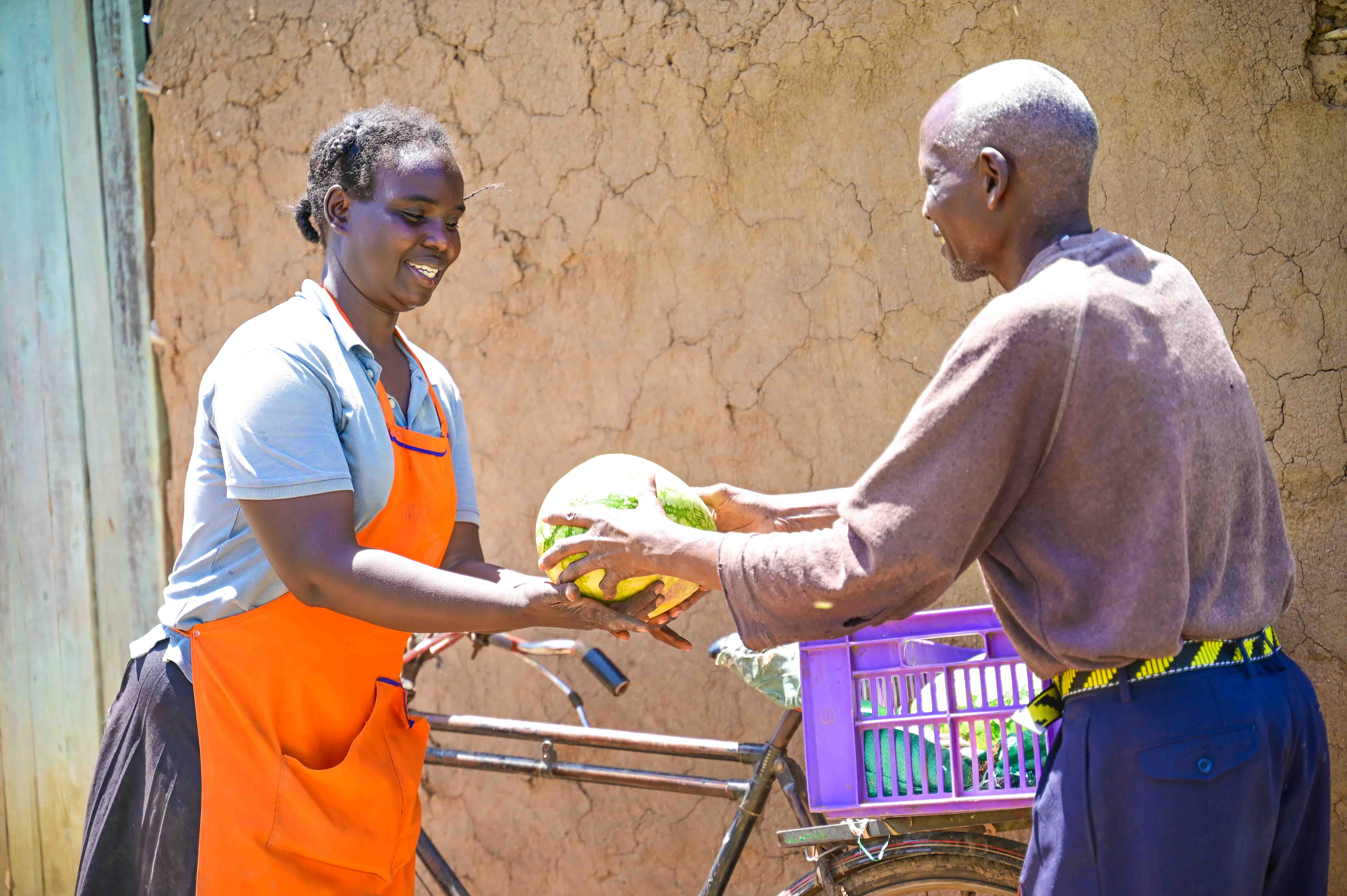
“From the profits I gained, I repaid my S4T loan, purchased 5 shares in the group and bought more watermelons for my next sale,” Isaac says.
Over a span of eight months, he sold watermelons that earned him a profit of at least 8,400 KES (65.24) per month.
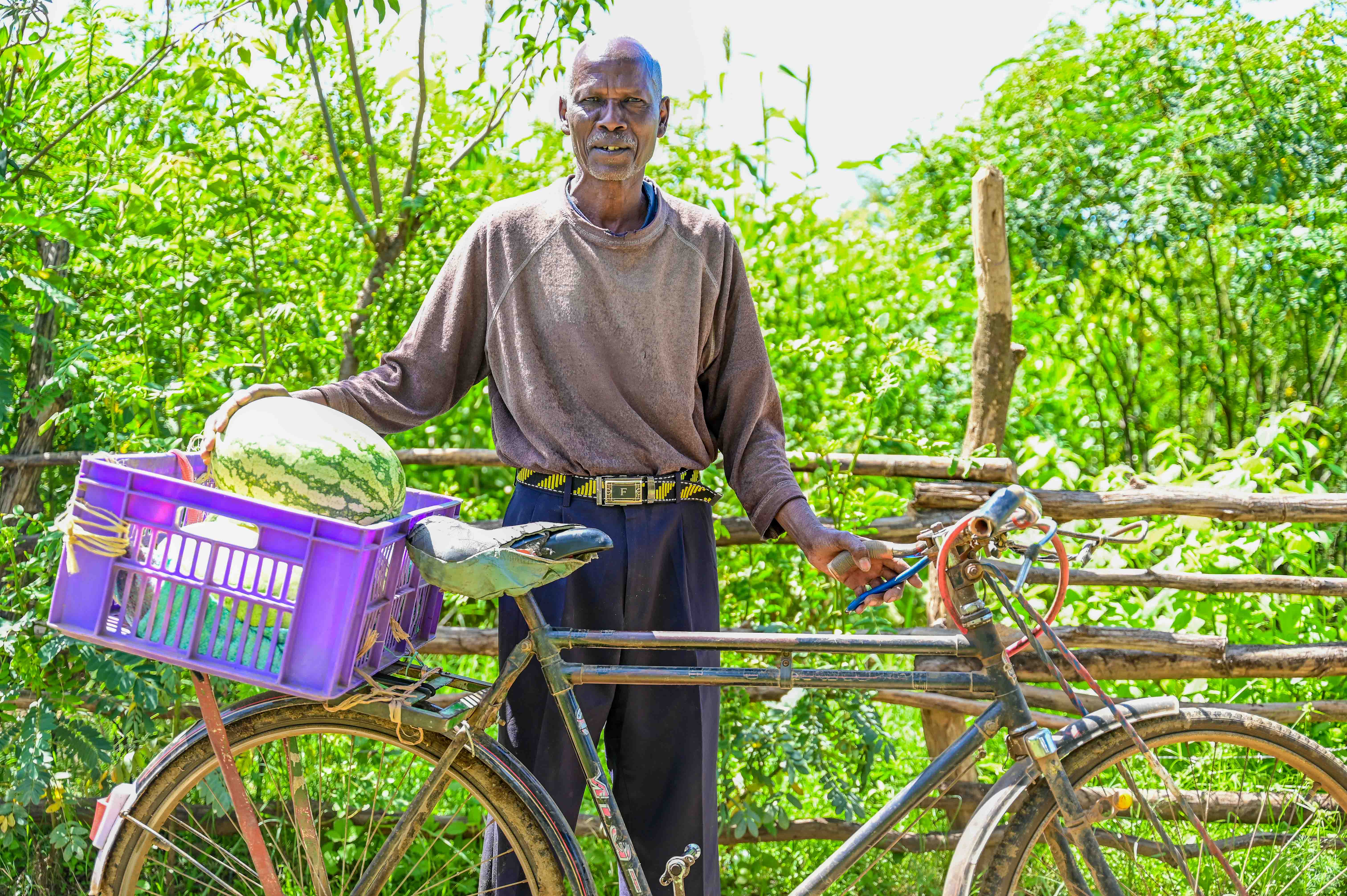
The Muricho S4T group was formed in October 2022 and completed its first group cycle in September 2023 when they shared out the 297,000 KES (2,306.88 USD) that had been amassed throughout the year. Isaac received 28,000 KES (217.48 USD) out of this amount.
Eleven men and twelve women make up the group's total of twenty-three local members. Three of the twenty-three members are Persons with Disability. Members of the S4T group save money in small amounts which can be used to lend out loans to the same members when need arises. These loans, which must be repaid within a predetermined period, attract a ten percent interest rate and can be utilized to pay for children’s school fees, cater for medical bills, boost businesses among other necessities that contribute to livelihood resilience. Group members are only allowed to purchase a maximum of five shares per sitting where the value of one share is equal to 100 KES (0.78 USD).
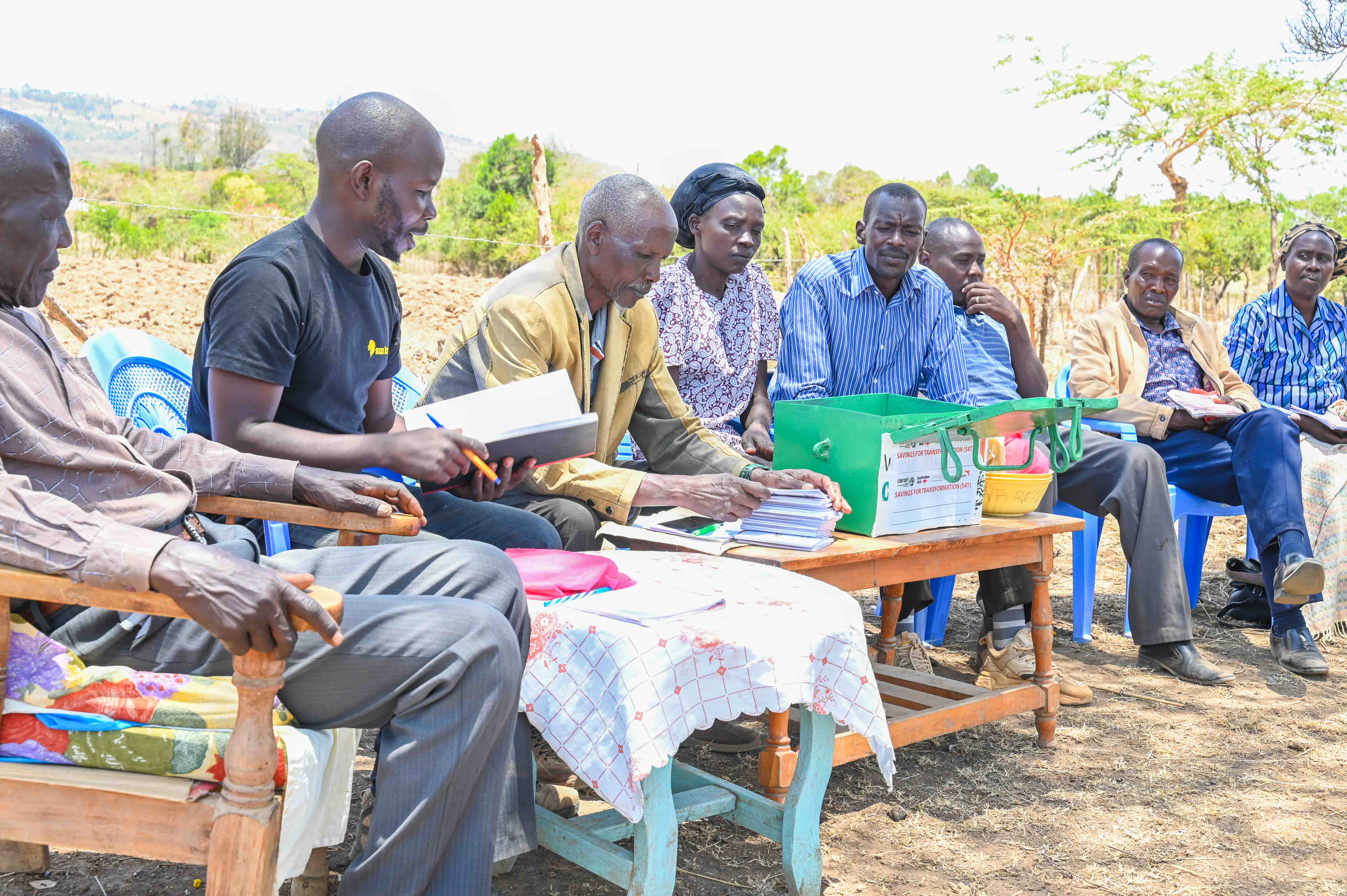
Throughout the year, Isaac occasionally took loans that he used for household necessities as well as boost his farm produce by purchasing more hens and chicken feeds.
Isaac claims that he was never very good at saving money because he used to live for the moment. Rather, he frequently bought sodas for his friends with the majority of his money.
“I used to misuse my money, thinking everything would work itself out. I had no idea how to save money. However, now that I have more financial discipline, I save and spend it more wisely,” Isaac remarks.
“I have been able to buy hens and sheep with the money I saved in S4T. I have also taught my family the value of saving money and how to do it. From their savings, my children have also purchased sheep," explains Isaac.
Isaac and his wife, Lina attended Gender Inclusive Financial Training (GIFT) organized by World Vision. World Vision’s GIFT is designed to help couples create gender equitable relationships in which both women and men are partners and equally contribute to the financial decisions that affect their household.
“The training was impactful. We learnt that we need to work together to succeed,” Isaac states.
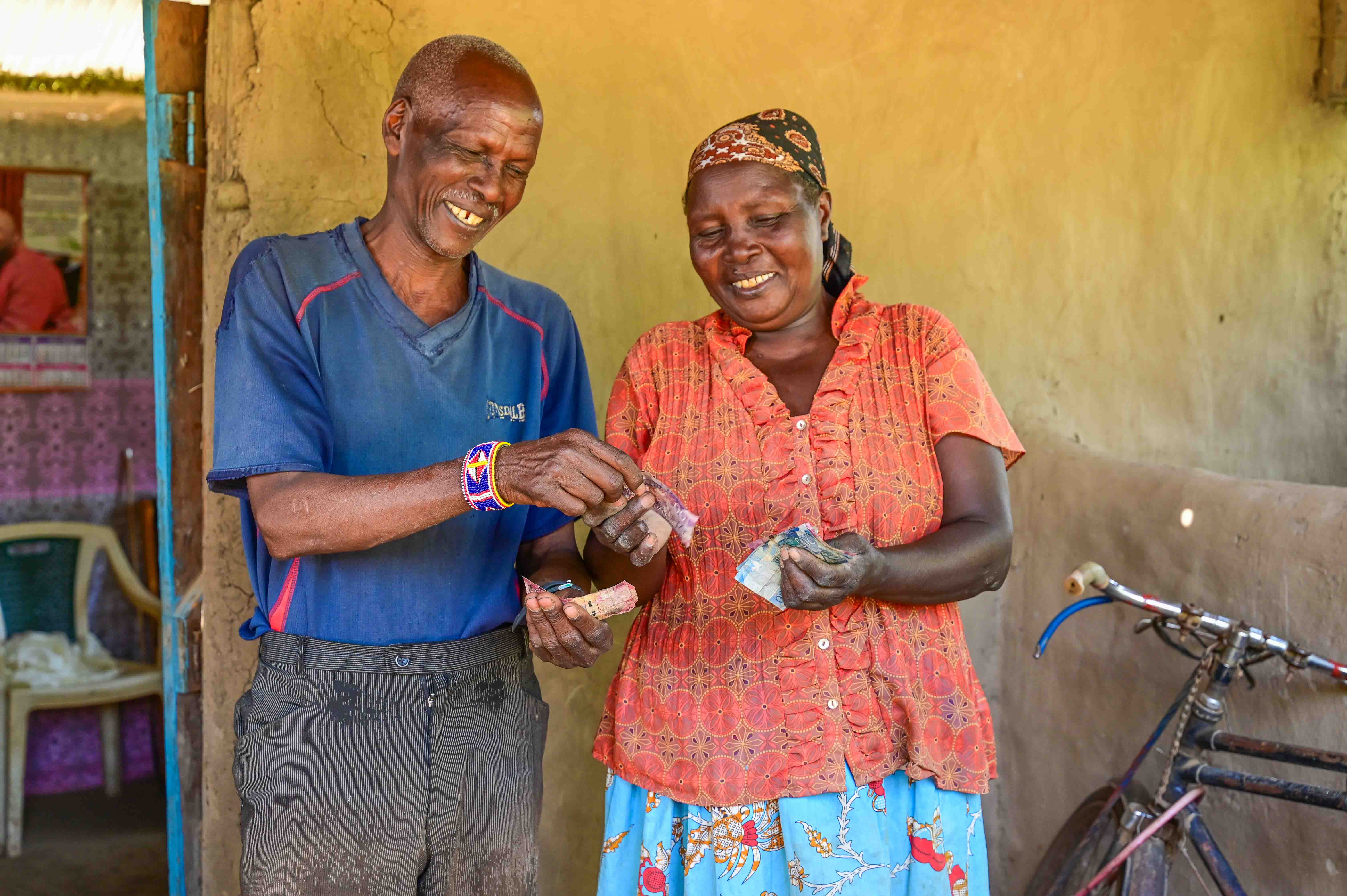
Lina says, “We learnt that we need to be transparent when it comes to household finances. Men don’t commonly show their money. However, after the training, this changed. It made me happy and now we collaborate when it comes to money matters.”
“To promote the holistic development of communities we work with, financial literacy is another crucial component incorporated in our programming in addition to training on FMNR,” explains Daniel Makana, Project Manager at CRIFSUP, World Vision Kenya, “ This is because through FMNR and other Income Generating ,Activities, families get increased household income that they need to know how to save and manage, to improve their living standards and efficiently provide for their children's needs. We also focus on inclusion of men, women, youth and Persons with Disability so that no one is left behind.”
By Hellen Owuor, Communications Specialist (CRIFSUP), World Vision Kenya